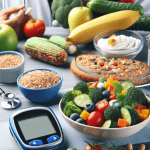What Are Ultra-Processed Foods?
Ultra-processed foods are products that have undergone significant industrial processing and often contain ingredients not typically found in a home kitchen. These can include artificial flavors, preservatives, sweeteners, and emulsifiers. Examples include sugary drinks, packaged snacks, instant noodles, and ready-to-eat meals. This level of processing often strips away the natural nutrients found in whole foods, replacing them with additives that enhance flavor and shelf life but may compromise health.
The Rise of Ultra-Processed Foods
Over the past few decades, the consumption of ultra-processed foods has surged, particularly in Western diets. According to a study published in BMJ Open, more than 50% of the calories consumed in the United States come from ultra-processed foods. This shift in eating habits raises concerns about public health, as these foods are often marketed for their convenience and taste, making them appealing to busy individuals and families.
Health Risks Associated with Ultra-Processed Foods
Research indicates that a diet high in ultra-processed foods can lead to various health issues. Here are some of the primary concerns:
1. Obesity
Ultra-processed foods are often high in added sugars and unhealthy fats, which contribute to weight gain. A systematic review in Obesity Reviews found a strong association between the consumption of ultra-processed foods and obesity rates among both adults and children. The mechanisms behind this relationship include the high caloric density of these foods and their low satiety value, leading individuals to consume more calories than they need.
2. Chronic Diseases
Regular consumption of ultra-processed foods is linked to an increased risk of chronic diseases such as heart disease, diabetes, and certain cancers. The World Health Organization (WHO) has classified processed meats as a Group 1 carcinogen, indicating sufficient evidence that it can cause cancer. Additionally, the high levels of sugar and unhealthy fats found in ultra-processed foods can lead to inflammation and insulin resistance, key factors in the development of metabolic syndrome and cardiovascular diseases.
3. Nutritional Deficiencies
These foods often lack essential nutrients. A diet rich in ultra-processed items can lead to deficiencies in vitamins and minerals, as they typically replace whole foods that are nutrient-dense. For instance, a British Medical Journal study highlighted that individuals consuming more ultra-processed foods had lower intakes of fiber and other vital nutrients. This lack of nutrients can have cascading effects on overall health, including weakened immune function and increased susceptibility to chronic illnesses.
4. Mental Health Issues
Emerging research suggests a connection between ultra-processed food consumption and mental health disorders, including anxiety and depression. A study published in Psychological Medicine found that higher intake of ultra-processed foods was associated with an increased risk of depression. The reasons for this connection may include the impact of poor nutrition on brain health, as well as the effects of high sugar and fat content on mood regulation.
Pathophysiology of Ultra-Processed Foods
Understanding the pathophysiological mechanisms behind the health risks of ultra-processed foods can provide valuable insights. The high glycemic index of many ultra-processed foods leads to rapid spikes in blood sugar levels, followed by crashes that can trigger cravings for more sugary foods. This cycle can contribute to overeating and weight gain.
Moreover, the additives in ultra-processed foods can disrupt gut microbiota, which plays a crucial role in digestion and overall health. A healthy gut microbiome is linked to better mental health, immune function, and metabolic processes. Disturbances in this microbiome can lead to conditions like leaky gut syndrome, which has been associated with various chronic diseases. Additionally, the presence of artificial additives may provoke inflammatory responses in the body, further exacerbating health issues.
How to Identify Ultra-Processed Foods
Understanding food labels is crucial for making informed choices. Look for the following indicators:
- Long ingredient lists: If a product has more than five ingredients, it might be ultra-processed.
- Unfamiliar ingredients: Ingredients that sound like chemicals or additives are red flags.
- Marketing claims: Be wary of products marketed as “healthy” or “low-fat,” as they may still be ultra-processed.
Making Healthier Choices
Transitioning away from ultra-processed foods can be challenging but beneficial. Here are some practical steps:
- Cook at home: Preparing meals from scratch allows you to control ingredients. Experimenting with whole foods can be enjoyable and rewarding.
- Choose whole foods: Opt for fruits, vegetables, whole grains, and lean proteins. These foods provide essential nutrients without the additives.
- Plan meals: Planning helps avoid the temptation of convenience foods. Consider setting aside time each week to prepare meals in advance.
- Read labels: Familiarize yourself with ingredient lists and nutritional information. Understanding what goes into your food can empower you to make better choices.
Patient Vignette
Consider Sarah, a 35-year-old mother of two. She relied heavily on convenience foods due to her hectic schedule. After experiencing fatigue and weight gain, she decided to reassess her diet. By gradually incorporating more whole foods and preparing meals at home, Sarah noticed significant improvements in her energy levels and overall health. She began to feel more energized and engaged with her family, demonstrating how dietary changes can lead to holistic improvements in well-being.
FAQs
What are some examples of ultra-processed foods?
Common examples include sugary cereals, instant noodles, packaged snacks, and ready-to-eat meals.
Are all processed foods unhealthy?
No, some processed foods like frozen fruits and canned beans can be healthy options. It’s the degree of processing that matters.
How can I reduce my intake of ultra-processed foods?
Start by cooking at home, choosing whole foods, and reading labels carefully to avoid additives.
Can ultra-processed foods affect mental health?
Yes, studies suggest a link between high consumption of ultra-processed foods and increased risk of depression and anxiety.
What should I look for on food labels?
Check for long ingredient lists, unfamiliar additives, and marketing claims that may indicate a product is ultra-processed.
Myth: All processed foods are unhealthy.
Fact: Not all processed foods are harmful. For example, canned vegetables and frozen fruits can be nutritious options. It’s the ultra-processed foods, high in additives and low in nutrients, that pose health risks.
Myth: Eating ultra-processed foods occasionally is fine.
Fact: While moderation is key, frequent consumption can lead to cumulative health risks. It’s essential to prioritize whole foods in your diet for long-term health benefits.
Myth: Ultra-processed foods are only a concern for children.
Fact: Adults are equally at risk. The health implications of ultra-processed foods affect all age groups, contributing to obesity and chronic diseases across the lifespan.
Key Takeaways
- Ultra-processed foods are linked to obesity and chronic diseases.
- They often lack essential nutrients, leading to deficiencies.
- Mental health may be affected by a diet high in ultra-processed foods.
- Reading labels is crucial for identifying ultra-processed items.
- Cooking at home can help reduce reliance on convenience foods.
References
- World Health Organization (WHO). (2020). Healthy Diet.
- Obesity Reviews. (2019). Ultra-processed food consumption and obesity: a systematic review.
- British Medical Journal. (2019). Associations between ultra-processed food consumption and nutrient intake.
- Psychological Medicine. (2021). Ultra-processed food consumption and mental health: a cohort study.
- BMJ Open. (2018). The contribution of ultra-processed foods to dietary energy intake in the USA.
- National Health Service (NHS). (2022). Healthy Eating: A Guide.








Post a comment